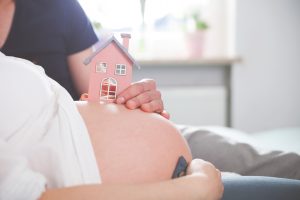We are amidst a broken maternity system in Australia where woman feel their needs and wants are not being met during birth.
Too often women are criticized for making non medicalized birthing choices, but we need to question why woman are choosing to seek alternative birthing options in the first place? What is our current maternity system lacking and what could we do to bridge this gap? By expanding the birthing choices for women and prioritizing safe evidenced based care we could potentially begin to see a real shift in the number of women emerging from birth feeling unsatisfied with their experience.
Until these conventional forms of care can change, and we broaden the options, women will continue to be feeling let down, unsupported and undeniably traumatized from their experience.
There are many contributing factors as to why, one of the main ones being the high intervention rate we have seen in Australia in the last 10 years. Woman are experiencing trauma that can potentially have lasting affects for future interactions with the same institution that caused the trauma.
We are seeing a rise of women seeking alternative birthing options such as homebirth and freebirth, where they are less likely to be coerced into the ‘cascade of interventions’ within the hospital setting. Unfortunately, very few women have access to homebirth through publicly funded models of care (only a small percentage are accepted in these programs), the only other option is hiring a private midwife, however this is not funded nor covered by insurance within Australia, making it a costly choice. There is supporting evidence that shows the countries that fund the option to homebirth (UK, Canada and New Zealand) have positive perinatal outcomes. Proven statistics, research and evidence-based care options should be at the forefront when deciding what is deemed ‘safe and unsafe’, instead we are faced with a system that are more concerned with ‘political safety’ of the institutions.

The debate around homebirth in Australia is ongoing, however the issues are much deeper than just the place of birth. We are faced with a society in which woman do not have full rights over the body during childbirth when birthing under the guidelines and policies of the system, medical dominance trumps. By prohibiting the option to a funded homebirth, it could suggest that this has been catalyst for broken maternity care where women and their birthing wants, and needs are not met. When these needs are continuously denied there will inevitably be consequences.
There have been several submissions to the Maternity Services Review that discuss opting for a freebirth. This is generally due to the high costs incurred and/or limited access to a private midwife for a homebirth. For others it’s the trauma that they suffered with a previous birth in hospital or if they are denied choice when faced with a breech, vaginal twin birth or VBAC. Interestingly, the rise of freebirth has predominantly occurred in Australia and the USA, both with high intervention rates and limited access to continuity of midwifery care.
All these contributing factors based around an unsatisfactory and limiting model of mainstream care has led to the rise of Doula’s. The emotional and mental support along with continuity of care women are seeking can be offered by a doula. Traditionally, midwives use to offer this care but over time hospitals have become overloaded and midwives are bound by a medically dominated system where policies and procedures must be followed. It is suggested that doulas are ultimately ‘filling the gap’ and facilitating a type of care that a midwife doesn’t have the capacity for now.

Doula’s have become increasingly popular for women who opt for a freebirth, this can raise concerns around the safety of a birthing women in the instance something goes wrong, and medical attention is required, doulas and not legally accountable and most will state this in their contract to protect themselves and their business. I think the popularity of doulas highlights the consequences of a broken system where women have no choice but to seek alternative care providers. I believe, until there are some significant changes made within our maternity system in which we listen to women’s needs, doulas will continue to dominate.
As a doula it is inevitable that you will be working alongside a midwife. It is important to keep in mind that you are there for the woman and partner and that they have hired you, you are not hired by hospital. However, I think it is equally as important to understand that you are entering an environment where policies and procedures must be followed (with consent) by a midwife. Creating a calm atmosphere where she is feeling safe, supported, respected and listened to is the goal. This can be achieved by introducing yourself to the midwife when you arrive. Setting the standard from the beginning and conversing and acting in a friendly manner by will make the Mum feel comfortable.
Energy does not lie and if a Mum is picking up on tension between her care providers, it could potentially affect her progression and overall birthing experience. Despite the variance in care that is offered by the doula and the midwife, ego’s must be set aside, it is important to have at the forefront of your mind that the priority is the mother, partner and of course the baby and working as a team is imperative.
Reference:
https://bmcpregnancychildbirth.biomedcentral.com/articles/10.1186/s12884-020-02944-6

My name is Aynsley Rope and I am a Doula who has completed extensive training at the Doula Training Academy with Vicki Hobbs. If you would like to talk more about your birthing options, please contact me:
Business:
The Primal Doula
Email:
[email protected]
Phone:
0414 190 784
Facebook:
https://www.facebook.com/The-Primal-Doula-107479901217471
Instagram:
https://www.instagram.com/theprimaldoula/
